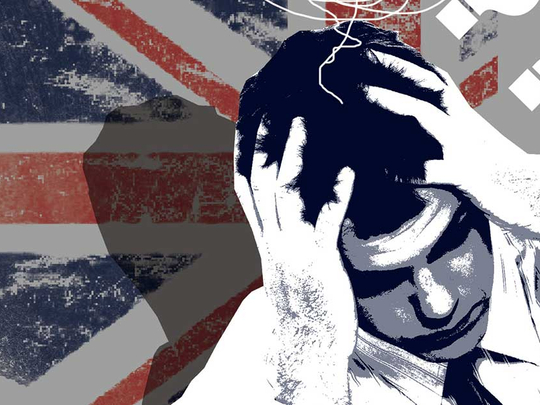
First there was the Brexit drama. Now comes the farce. Almost a year after a narrow majority of Britons voted to pull out of the European Union (EU), British voters faced a general election yesterday that was as unwanted as it was unexpected.
One thing on which all people agree about Britain’s Prime Minister, Theresa May: She knows how to keep a secret. Even senior party colleagues were taken unawares by the timing of the snap June 8 election. Most still appear to be in the dark about what their campaign message was supposed to be. The prime minister’s mantra was “Strong and stable leadership”. But to what purpose?
“Brexit means Brexit” also has a clean ring to it, but May has had trouble spelling out what a post-European Britain would look like. There is a world of difference between an amicable divorce and a messy one. A more honest slogan would be: “Making the best of a bad job.” But no one, not even the party of Winston Churchill, is in the business these days of selling blood, sweat and tears. Brexiteers propose instead recapturing the spirit of an earlier Elizabethan age, when plucky English buccaneers forged pathways to the New World. This is a delusion based on a fantasy of how the 21st-century world works.
What ever happened to internationalist Britain?
An unexpected surge of populist-nationalist rage at globalist elites is often blamed for the Brexit vote. But it is the elites, not the people, who have led Britain’s retreat from Europe and the world.
Britain’s withdrawal from the EU is part of a more prolonged disengagement that started years before Brexit. The political leaders of the 1970s, like Edward Heath, Denis Healey, Roy Jenkins and Harold Wilson, who took Britain into Europe, had either fought in the Second World War or lived through it. Even former British prime minister Margaret Thatcher was, initially, an enthusiast for membership in Europe. They understood the pre-war perils of a disunited Europe.
Their heirs, who were elected to parliament in the late 1990s and the first decade of this century, have had less experience of the world beyond Britain’s shores than any political generation in decades, perhaps centuries. They have become the leaders of a post-internationalist Britain, a new insularity that Churchill would have found unfathomable.
I happened to attend university with almost this entire echelon of today’s political class. David Cameron, the former prime minister, was two years my senior at Oxford. George Osborne, the former chancellor of the exchequer, was three years below me. In this same cohort were Boris Johnson, Britain’s Foreign Secretary, and Ed Miliband, the former Labour leader. May, who also went to Oxford, is several years older than this group, but her politics epitomises Britain’s retreat into a provincial mindset. (Jeremy Corbyn, the Labour party leader, escapes this narrow demographic. He attended North London Polytechnic.)
With brief exceptions, such as Johnson’s spell as a journalist in Brussels, in which he spun unflattering and mostly mendacious tales about the “Eurocrats”, few of this group evinced much interest in world affairs. What they lacked in global experience they substituted with London networking. Among Cameron’s social circle, known as the “chumocracy”, vacationing in Tuscany did little to bolster Britain’s prestige abroad or its role in maintaining the international order. In Thatcher’s day, an invitation to the prime minister’s weekend retreat meant a rigorous schedule of seminars. In Cameron’s time, the agenda consisted of tennis, croquet and Pimm’s cocktails.
It is up to May, or possibly Corbyn, to pick up the pieces.
The recent terrorist attacks, first in Manchester, now in London, have reinforced the public’s sceptical mood about their political leaders — which only raises the chances of a hobbled British government even less able to handle the Brexit negotiations than before. But it is not only in Brussels that the self-described “difficult woman” could be in for a difficult time.
A deeper crisis of legitimacy could soon emerge. May inherited a Conservative majority in the House of Commons of just 17 seats, which she clearly felt was too narrow for comfort. If she fails to lift that margin much beyond 30, people will ask why she bothered to call an election at all. Leadership rivals will start circling.
With the prospects of a disadvantageous Brexit deal rising, Scotland would be tempted to push for another referendum on independence. Northern Ireland, too, where a majority of people voted to Remain, may become restive if its open border with the Republic of Ireland, a mainstay member of the EU, is placed in doubt. Amid all this disunion, Britain would turn further in on itself. So much for plucky buccaneering.
This is the pass that Britain’s provincial-minded elites have brought the counry to. After his Brexit debacle, Cameron left power much as he had wielded it — humming absent-mindedly as he bade farewell from Downing Street. But he, a son of privilege, has landed on his feet. If only the same could be said for Britain.
— New York Times News Service
Edward Luce, the chief American commentator for the Financial Times, is the author of The Retreat of Western Liberalism.









